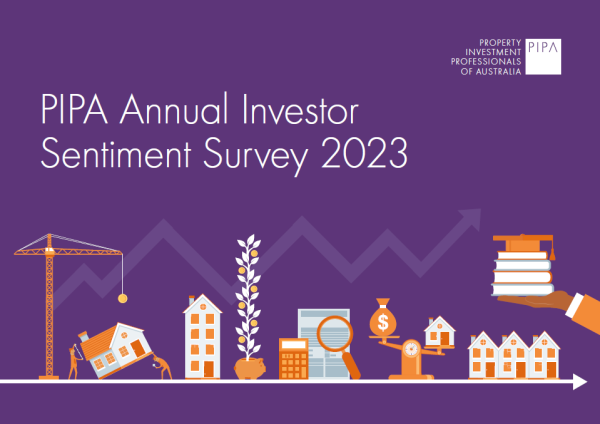Property boom: How to multiply your real estate assets
Mar 2021Karen Millers
Categories
Location ReportsMedia releasesNational market updatesPersonal advisersPIPA AdviserPIPA Annual Investor Sentiment SurveysPIPA Member ProfilesPIPA video updatesPIPA webinarsPodcastsProperty advisersProperty newsLatest Articles
Rent rises ease but crisis’ link to population density found to be tenuous
Jordan van den Berg: The ‘Robin Hood’ TikToker taking on Australian landlords
Victorian property investors face yet another new property tax as council tests levy
Rentvesting in Australia: A deep dive
‘More chance of winning lotto’ than housing targets being met
Almost three-quarters of Australia’s 2.2 million residential real estate investors stop at one property, but it’s purchases two, three and four than can really set them up for life.
Multiplying a property portfolio is daunting for many because of its bigger borrowings, fear of the unknown, potential affordability issues and a lack of understanding around using debt to get richer.
While two rental properties double your debt, they can also double your profits and income, and supercharge your equity to build more wealth. One investment property worth $500,000 growing at 10 per cent in a year produces $50,000 of capital growth, while two properties grows by $100,000 – a simple way to earn six figures.
Make a Start
Property Investment Professionals of Australia chairman Peter Koulizos says “the hardest one is the first one” when expanding a property portfolio.
“What many investors don’t understand is once they have their first investment property and own their own home, they can use equity from two properties to buy other investment property,” he says.
“Property prices are rising quite quickly too, so if you have an investment property you probably have equity that you didn’t realise.”
The latest Australian Taxation Office data shows 1.6 million individuals have an interest in one rental property, while 419,000 have two properties. Beyond that, 130,000 have three properties, 47,000 have four and 41,000 have five or more.
Koulizos says the first step when expanding is to “get all your ducks in a row”.
“Have a budget and be clear on how much money you earn, spend and how much is left over,” he says.
Get your home and investment property valued – some lenders don’t charge for this service – and educate yourself about what to buy and where.
Diversify
“It’s worth looking outside your own backyard – there can be other areas in Australia that could do better in generating capital growth,” Koulizos says.
“Just do it. Too many people think about it and don’t do anything about it.”
Shashank Pande and wife Smiti have multiple properties and believe in holding them for long periods – at least 15 years – to build wealth and generate several sources of rental income.
He says property is part of the couple’s retirement planning, which involves eventually selling some properties to become debt free and using rent from the others to fund their lifestyle.
“We have a documented long-term plan to help us achieve this,” Pande says.
He says self-doubt was the couple’s biggest challenge when growing their property holdings but this was overcome by educating themselves through podcasts, books and investment courses.
“We think that 2021 is going to be a challenging year for investors given the current state of the market,” Pande says.
“Constrained supply, low interest rates, favourable bank lending policies and incentives available to first homeowners make it harder for Investors to secure investment-grade properties at reasonable prices.”
No Cash Required
Experienced investors don’t pay cash to grow their portfolio, instead using the equity in their properties to cover deposits and fees.
BMT Tax Depreciation chief executive officer Bradley Beer says many people have an “inherent fear of debt” and a lack of understanding around using debt to leverage into the property market.
“When a property goes up in value you don’t get money – you get an overall wealth increase. And you make money on the overall value, not the cash you put in,” he says.
Multiple properties require a bigger backup plan to cover risks including tenants defaulting and interest rates rising.
And don’t forget depreciation tax deductions that often total more than $10,000 a year.
Beer says 70 to 80 per cent of investors don’t maximise their depreciation benefits, either by skimping on the cost of a report or ignoring depreciation altogether.
“Some think it doesn’t exist anymore,” he says, because 2017 rule changes stopped deductions for fixtures and fittings in second-hand property purchases.
But that rule change does not apply to capital works deductions for a home’s building cost, which represents about 85 per cent of total depreciation deductions, and does not relate to new properties, Beer says.
Expand Your Property Holdings
- Assess your assets, debts and income, and write a plan for growth.
- Use equity, rather than cash savings, to buy new properties and avoid lenders mortgage insurance.
- Research your target market’s prices and rents. Websites including corelogic.com.au, sqmresearch.com.au and realestate.com.au can help.
- Consider buying interstate, which can deliver diversification and reduce your land tax bills.
- Have a businesslike approach to investing – don’t be emotional about something you won’t live in.
Anthony Keane, Daily Telegraph, 22 March 2021
Australian property market 2021: How to make money from real estate | Daily Telegraph




